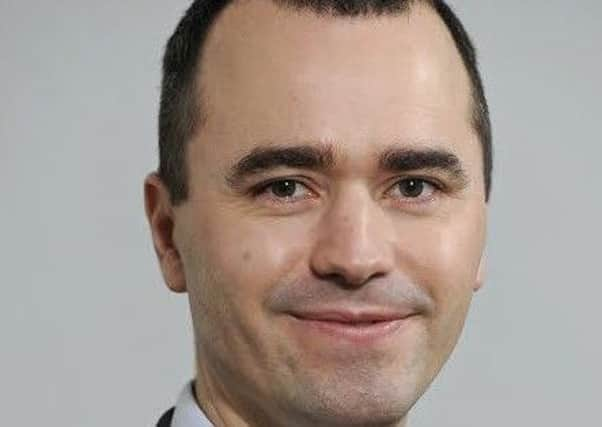Capital doctor becomes first Scottish man to qualify as official classifier of blind athletes


Consultant ophthalmic surgeon Dr Andrew Tatham will be tuning into the Rio Paralympics this month with extra special interest, knowing he could be playing a major role at the Tokyo Games in 2020.
In the interests of fairness, blind and visually impaired athletes are classified depending on the severity of their eye conditions.
Advertisement
Hide AdAdvertisement
Hide AdDr Tatham, from the Edinburgh Clinic in Colinton Road, completed the rigorous training process to become a National Visual Impairment Classifier with the British Paralympic Association (BPA).
He will be classifying his first set of athletes at a BPA event in Glasgow in October, where he could be working alongside British Paralympic athletes such as Scotland’s own Libby Clegg, who won a silver medal in the 100m at the London Paralympics in 2012.
Dr Tatham will be working with athletes in a variety of sports, ranging from athletics and swimming to archery and goalball.
In running events, the athletes are guided by sighted teammates by holding a rope.
Advertisement
Hide AdAdvertisement
Hide AdSwimmers are informed when to stop and turn when they reach the end of the pool by someone tapping them on the head.
And visually impaired cyclists travel in tandem with sighted athletes.
Dr Tatham said: “There are different levels of sight and visual impairment so it’s not fair for everyone to compete in the same categories.
“We have these classifications to help create a level playing field for the athletes.”
Advertisement
Hide AdAdvertisement
Hide Ad“One of the problems classifying visual impairment is that examining eyes is complex and takes expertise and specialist knowledge.”
As eye conditions can be changeable, athletes have to attend regular classification sessions to make sure they continue to be in the relevant category right up until the events they are competing in.
Classifiers also carry out “spot checks” at major events such as the Paralympics and the World Championships.
Dr Tatham is concentrating on classifying UK athletes but is now preparing to undertake an international training scheme so he can classify athletes from other countries.
Advertisement
Hide AdAdvertisement
Hide AdHe said: “It was really good to meet the athletes during my training.
“Some of the athletes were born with visual impairment but others have lost vision later in life.
“It shows how they haven’t been held back by their visual problems and how sport has become such a positive thing in their lives.
“They have not to let having a problem with their vision hold them back.”
Advertisement
Hide AdAdvertisement
Hide AdLast week, 23-year-old Bethany Woodward – one of Britain’s top Paralympic athletes – quit Team GB claiming that more able-bodied athletes were being wrongly classified to improve their medal prospects.